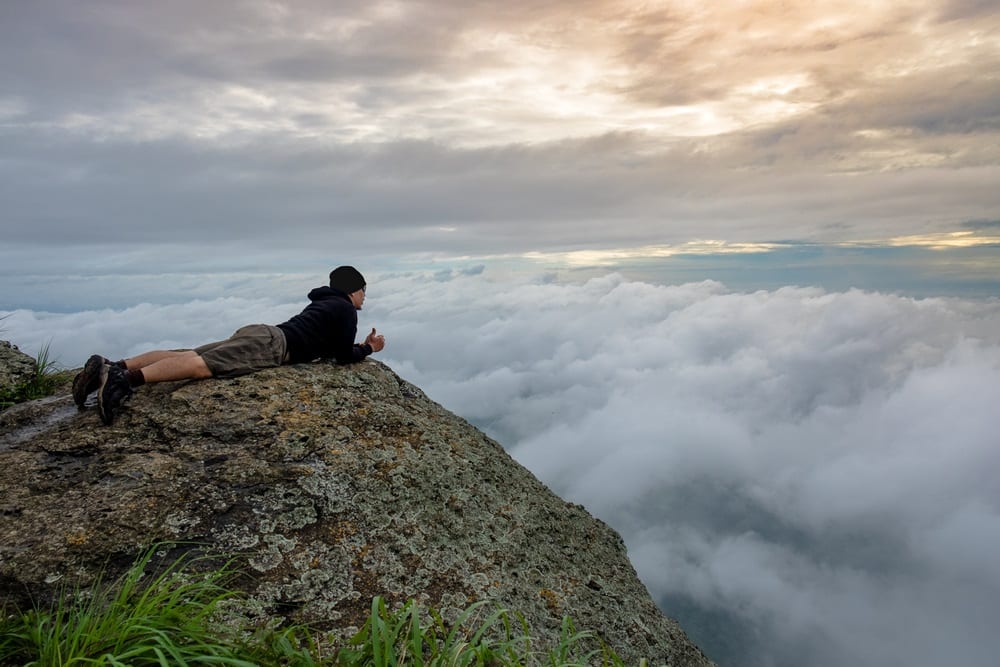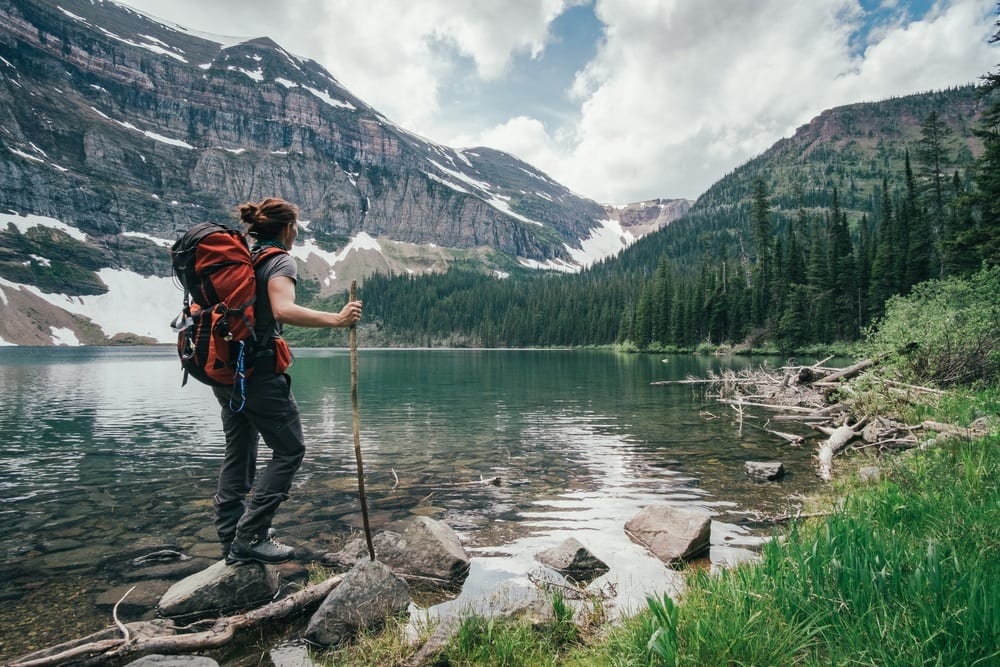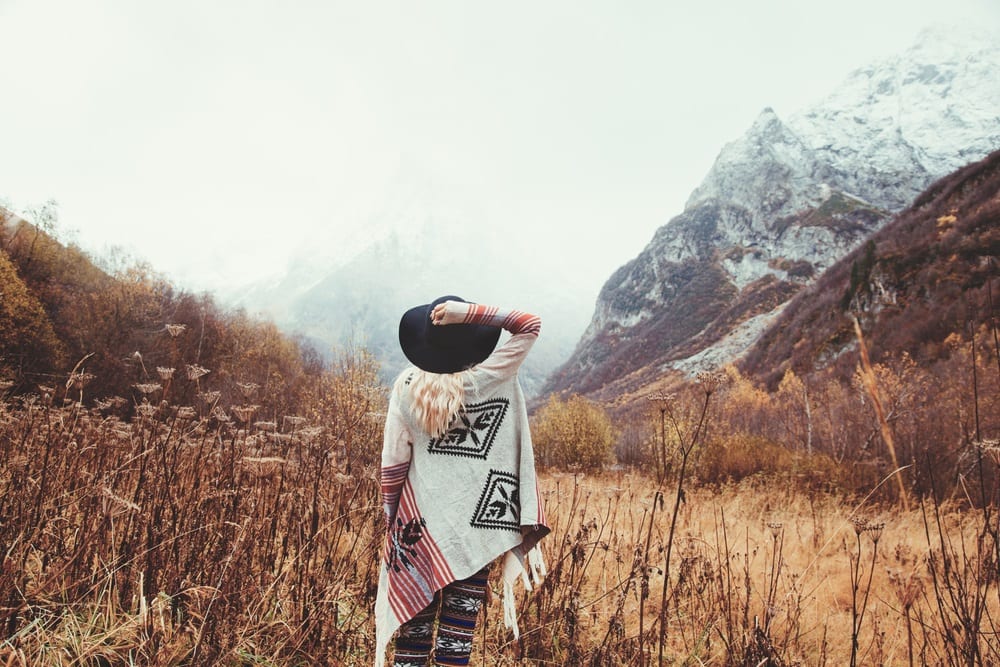Three life-altering benefits of adventure hiking
A new study has revealed that hiking is officially the most popular activity among adventure travellers, outstripping kayaking, scuba diving and horse-riding as a must-have experience abroad. So, what is it about the simple act of traversing the Great Outdoors that appeals to us so much? Here, we take a closer look at the free and brilliant benefits of trekking – whether that’s the extraordinary Rainbow Mountain of Peru, or a once-in-a-lifetime South African bush walk.
Nature dials us down

In a relentlessly “on” world where we spend on average five years of our lives sitting at a desk and more time on our phones than asleep, hiking in nature offers a much-needed respite. Cognitive psychologist David Strayer from the University of Utah believes that being immersed in wilderness allows our prefrontal cortex – the brain’s command centre – the chance to wind down and realign, like an overused muscle. “On the third day [of being outdoors] my senses recalibrate – I smell things and hear things I didn’t before,” he tells National Geographic magazine. “I’m more in tune with nature. If you can have the experience of being in the moment for two or three days, it seems to produce a difference in qualitative thinking.”
Read more: The world’s best vegetarian-friendly countries
Strayer’s hypothesis builds on research by environmental psychologists Stephen and Rachel Kaplan, from the University of Michigan. They argue that the sensory elements in natural environments, such as clumps of mountain flowers or serene, mirror-like lakes, provide exactly the right kind of stimuli to decompress our stressed-out minds. These types of outdoor features provide a soft, non-obtrusive focus that allows our brains to wander and rest. “Imagine a therapy that had no known side effects, was readily available, and could improve your cognitive functioning at zero cost,” the Kaplans wrote in their paper. It exists, they noted, and it’s called “interacting with nature”. Trekking differs from say, kayaking or abseiling, in this sense. All involve nature but crucially, hiking is slower and more simple; so we’re better able to notice the things around us without any other demands on our attention.
Walking boosts self-esteem

The naturalist John Muir once proclaimed that, “Sometimes a man needs to grab a loaf of bread, throw it in a sack, and jump over the back fence”. Embarking on an adventure in the Great Outdoors proves our skill for self-reliance and survival in a very base way. We evolved in nature, so it makes sense to re-connect with it. We gain a lot of satisfaction just by taking things back to the simple premise of woman (or man) versus wilderness. A 2010 study from the University of Essex found that just five minutes of “green activity” per day – such as hiking – was enough to significantly boost mood and increase self-esteem. The researchers went so far as to suggest that people should “self-medicate” by heading outside, to reap its substantial mental health benefits.
This benefit reaches beyond the happiness lift of exercise or even the ameliorative de-stress effect of nature. Being in nature takes us outside ourselves and simplifies things. By taking a hike somewhere remote, we reaffirm our relationship with our environment and the world at large. It’s about surviving and thriving. Author Richard Louv believes that living apart from the outdoor world leads to what he terms “nature deficit disorder”, something that affects “health, spiritual well-being, and many other areas, including [people’s] ability to feel ultimately alive”.
Hiking gives time for self-reflection

One of the greatest paths to fulfilment in life is knowing who you are and what drives you. In Japan, this is referred to as your ikigai (pronounced aki-gay-aai): your purpose, or the reason you get up in the morning. Amazingly, research has shown possessing a well-honed sense of ikigai can significantly decrease your risk of mortality, even when other lifestyle variables (such as smoking) are taken into account. We might not all play by the term “ikigai”, but it makes sense that knowing who you are, and living by that knowledge, can improve your life. “The one thing that you have that nobody else has is you,” says author Neil Gaiman. “Your voice, your mind, your story, your vision. So write and draw and build and play and dance and live as only you can.”
Read more: Solo travel fuels this major happiness habit
Everyday life doesn’t allow us the time or head space for self-reflection. How can we identify our driving purpose when we’re caught up in the hustle of Who What Where? It’s simply not possible. By taking a hike, we give ourselves the literal room, and the head space, to think more clearly about our purpose. We’re also thrown outside our usual routine, which acts as a catalyst to change and risk-taking facilitated by our newfound sense of self-awareness. “Left unchecked, we always default toward a more comfortable path,” says Thrive Global writer Thomas Oppong. “Your comfortable zone provides a state of mental security. You can understand why it’s so hard to kick your brain out of your comfort zone. Many people are living their entire lives without ever standing up and stepping out. But it’s exciting to witness the rare few who dare themselves and step out of their personal bubbles to work on achieving something worthwhile.”
Take a hike with Flash Pack

Reap the unique benefits of hiking with five popular Flash Pack routes:
- Trek and kayak through snow-capped peaks
Explore the stunning scenery of Perito Moreno Glacier - Hike a live volcano in Bali
Join a breathtaking sunrise climb up Mount Batur - Discover the mountains of Morocco
Wander the remote Berber homeland of the Tizi Mizik Pass - Ramble the river canyons of Sicily
Swim, swing and climb through the Alcantara Gorges - Marvel the green valleys of Vietnam
Meet ethnic groups living in the mountains of Sapa
Photos: Shutterstock



